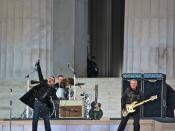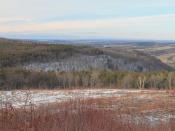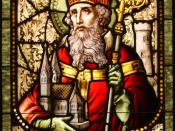The film "In Search of Ancient Ireland" and the book by Thomas Cahill titled "How the Irish Saved Civilization" are two fascinating sources of information on early Irish history. They each discuss the role of religion in ancient Ireland, as well as the invasions of the Vikings. Although each examine the same issues, both sources present slightly different views, one being somewhat more biased, and the other a more objective portrayal, on Ireland's history and it's interaction with other cultures. Each also provides information the reader/viewer may not already know and which may help to better understand Ireland's role in history. Both sources, while they may differ on some points, are informative, interesting, and even inspiring.
"In Search of Ancient Ireland" provides the viewer with highly credible information on the beginning of Christianity in Ireland. The information is presented by several historians who take us around Ireland, allowing us to see ancient sites built or used by the early Christian church.
We are made aware of many pre-Christian traditions and how they were incorporated into the Christian religion, such as crosses made from reeds. There is a strong emphasis on the non-violent conversion of pagans to Christianity and the reasons behind it. The film's presentation of Ireland's burgeoning Christianity gives us a picture of a beautiful land filled with strongly religious people readily accepting this new Christian religion.
In Cahill's How the Irish Saved Civilization, the view of Christian Ireland is much more romantic. Even the story of Patrick's escape from slavery could be thought of as a romantic tale. "...he received in his sleep his first otherworldly experience. A mysterious voice said to him: 'Your hungers are rewarded: you are going home'" . It goes on to explain how he walked two hundred miles through...


